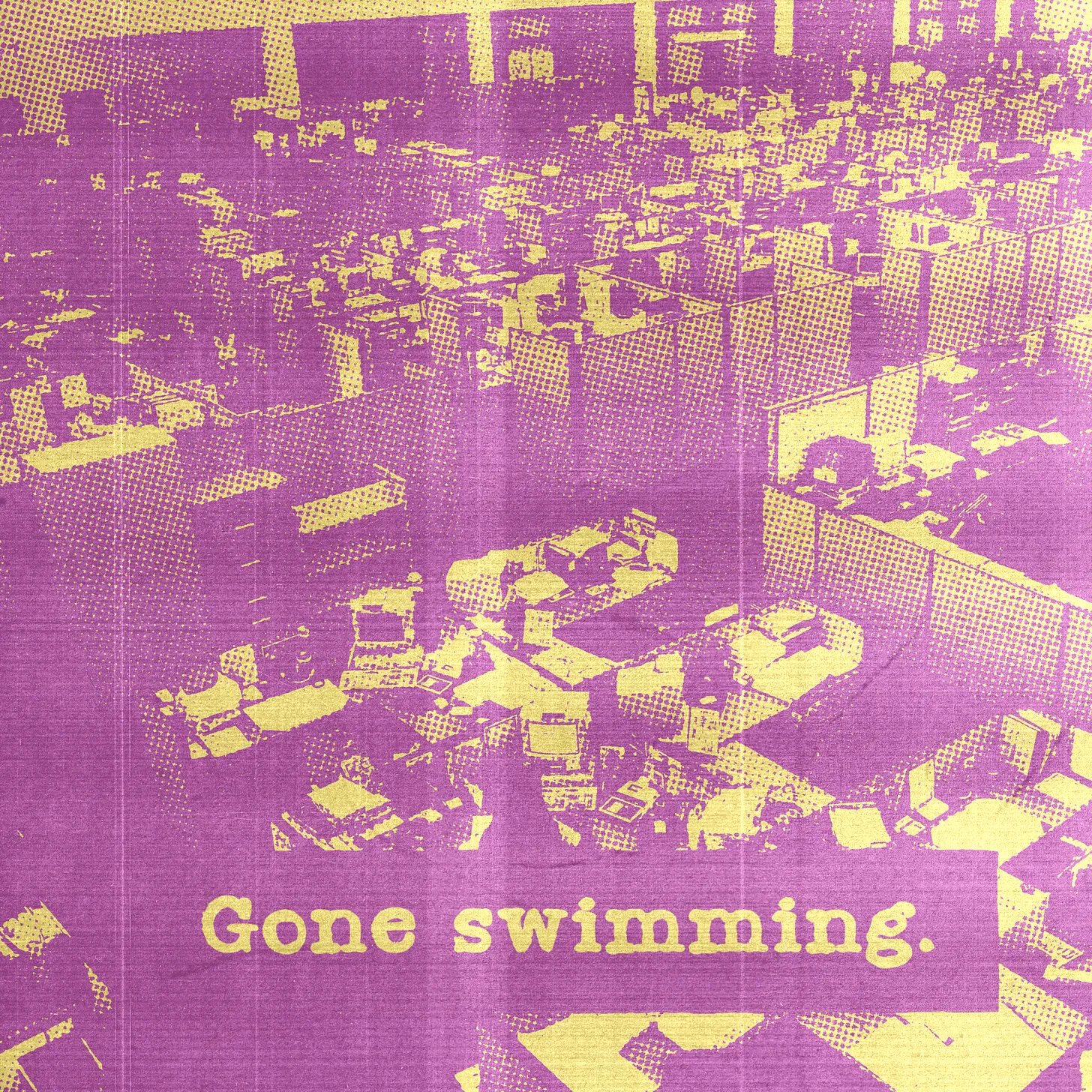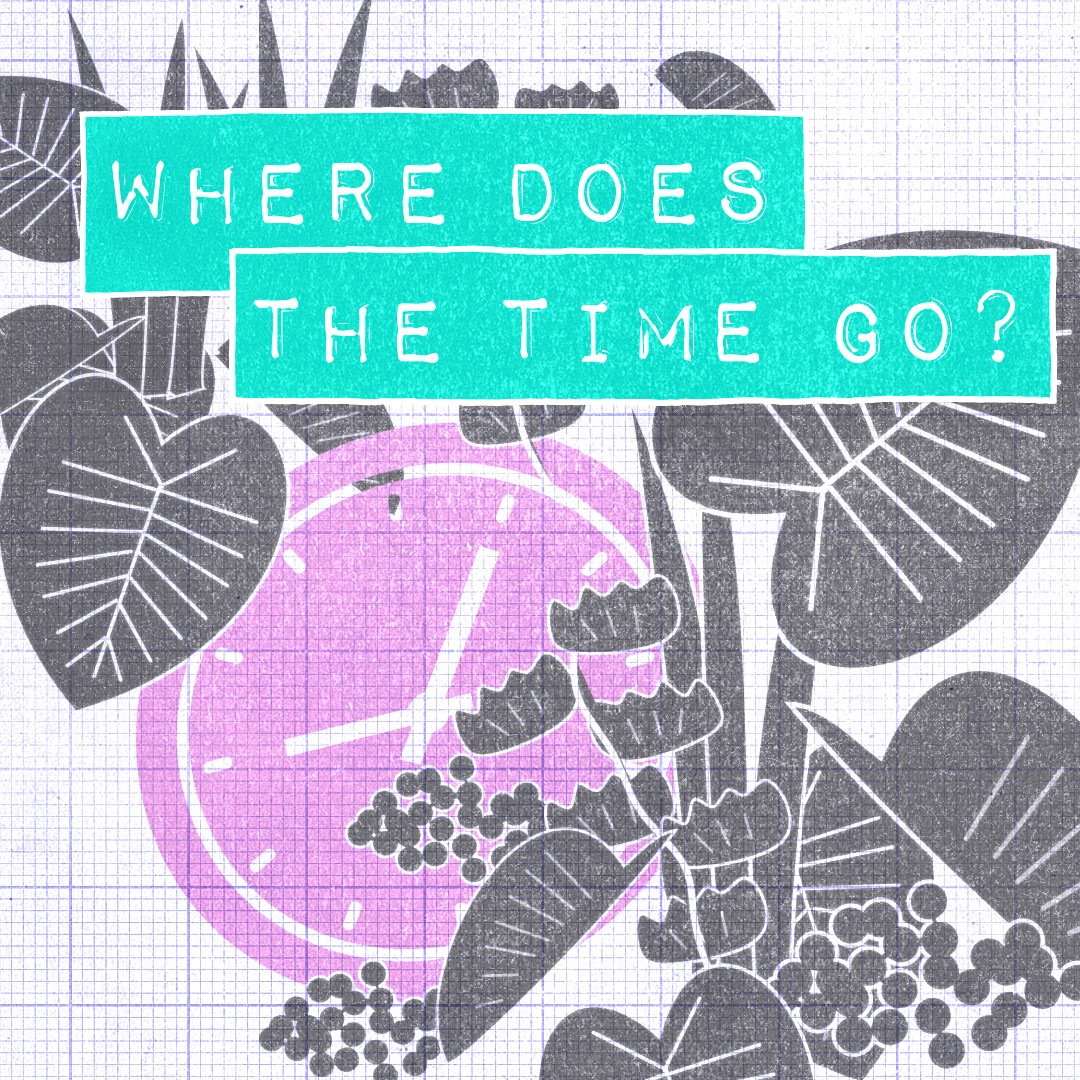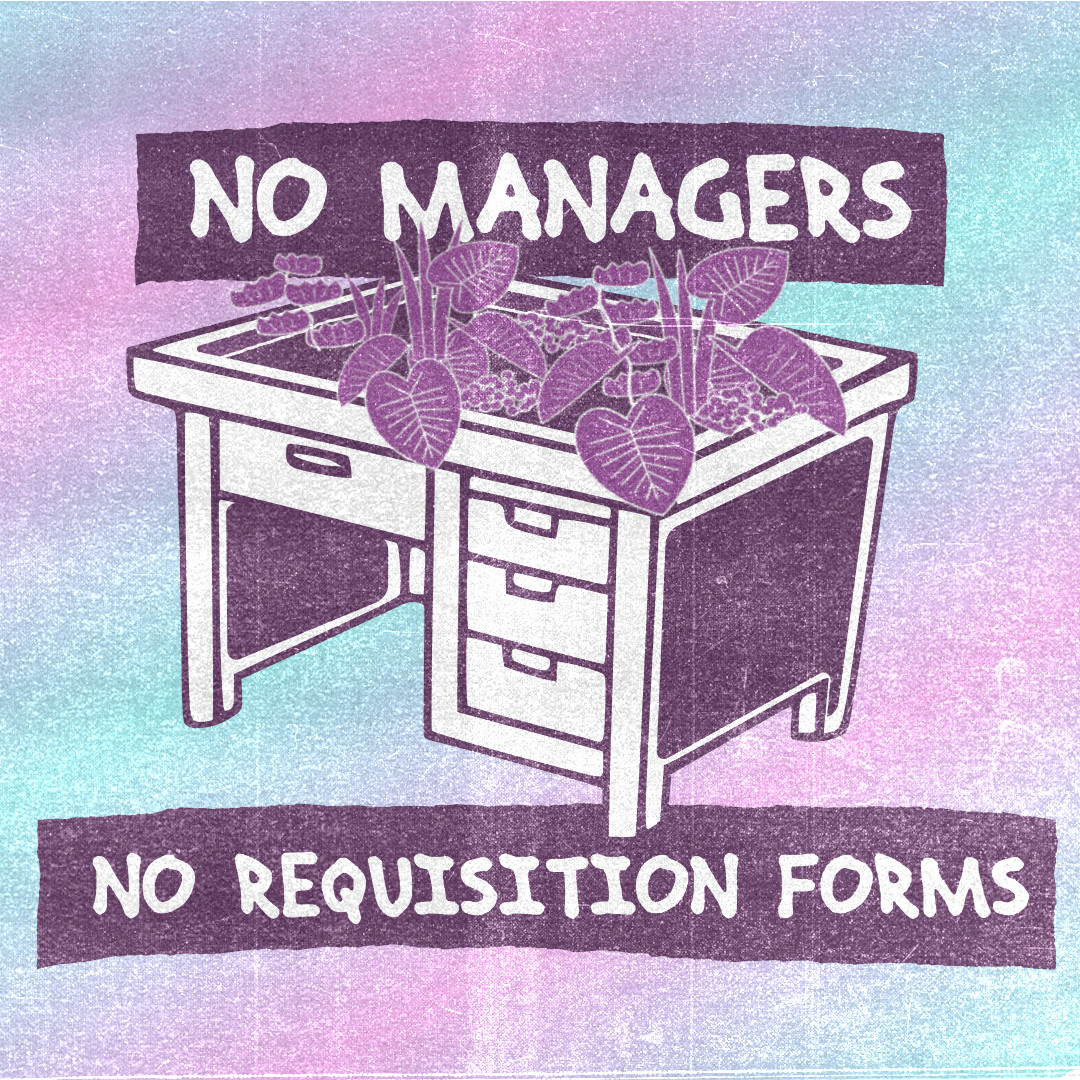I’m closing up the shop for the rest of the month. I’m going to take a breather and finally read a book about pirates that is … just … sitting … on my shelf. Oh, and we’re headed to the beach and going swimming. So, this will be the last issue until September. It’ll be a short one— I have a cooler of ice cream sandwiches to pack!
Is it ok to want to not work all the time?
I’m lucky to have vacation at all, but I have to admit that being away from work always makes me a little nervous. Shouldn’t I be doing something productive? Will my world collapse while I’m not at my desk?? Will everyone realize that I’m not needed??? Shouldn’t I be productive?!!
It’s like I have a malfunctioning wind-up toy on my shoulder ringing a bell in my ear. It makes it hard to relax.
It’s not just me. It seems almost too obvious to say that we live at a work-focused moment. The paid work people do (or can’t do) defines so much about their lives, from their sense of self, to how they can afford to live, to their ability to survive at all. The pressure is enormous and apparently increasing, even as good paying jobs with reasonable benefits become ever more rare and the demands on people with jobs get higher.
What’s less obvious (at least to me) is what it would look like for paid work to occupy a less central place in people’s lives. The most interesting thinking I’ve found on this comes under the broad banner of “post-work” and “anti-work.”
It turns out that even when I’m trying to take it easy, I can’t help making a bibliography, so I have a few things I’d like to share about not working.

What is post-work?
Post-work/anti-work is a broad category of thinking and action that questions the role of paid work in our lives. It pulls in a few different directions and encompasses a few different strands:
Labor movement. There is a strand of the labor movement in which workers fight for more control over their lives and time. So, rather than just asking for higher wages and better conditions, they also demand more time off, more autonomy, and ultimately a renegotiation of the whole wage relationship.
The 8-hour day (40 hr/wk) movement is the classic example of this tradition (thanks, Wobblies, for evenings and weekends!). There are folks taking up that baton to fight for 5 hour work day (and 4 day week).
People have also refused to work for as long there’s been wage labor. It’s a long, though underappreciated, part of labor history. The Italian Autonomists in the 1960s and 70s were one most explicit moments, but there are examples from the vagabonds of olde England, to the great resigners of today.
Political Economy. In this strand, people are looking at the changing role of work in society. Especially interesting is thinking about what happens as 20th century-style jobs (steady, long-term, with a living wage and benefits) are eliminated. Are there other ways to make and distribute things that isn’t so tied to having a job?
Cultural criticism. This strand looks at the meaning of work. The questions here are about how work became so highly valued and what has happened to society as a result. How do people resist the over-valuation? What other options are there?

So, if you need philosophical justification for taking it easy (or for feeling that work isn’t all it’s cracked up to be), I’ve got you covered. And if you can, grab a pool noodle and meet me at the beach— I have plenty ice cream sandwiches to share. If not, hang in there! And I’ll see you in September.
Here’s where to learn more about post-work thinking:
An article introducing the core ideas of post-work: Beckett, Andy. “Post-Work: The Radical Idea of a World without Jobs.” The Guardian, January 19, 2018, sec. News.
My favorite academic book on this (so far): Weeks, Kathi. The Problem with Work: Feminism, Marxism, Antiwork Politics, and Postwork Imaginaries. Durham: Duke University Press, 2011.
A classic essay against the over-valuing of productiveness: Russell, Bertrand. “In Praise of Idleness.” Harper’s Magazine, October 1, 1932.
All the algorithms think I should read this. They’re probably right. Jaffe, Sarah. Work Won’t Love You Back: How Devotion to Our Jobs Keeps Us Exploited, Exhausted, and Alone. First edition. New York, NY: Bold Type Books, 2021.
A podcast about the recent rise of the Anti-Work subreddit: Endless Thread, “‘Your Life Is Just Numbers’: The Complicated, Chaotic Rise of Reddit’s ‘antiwork’ Community.”
An analysis and re-imagining of society after wage labor: Gorz, André. Reclaiming Work: Beyond the Wage-Based Society. Cambridge, UK : Malden, MA: Polity Press ; Blackwell, 1999.
A history and philosophy of worker resistance to work: Frayne, David. Refusal of Work: The Theory and Practice of Resistance to Work. London: Zed Books, 2015.




